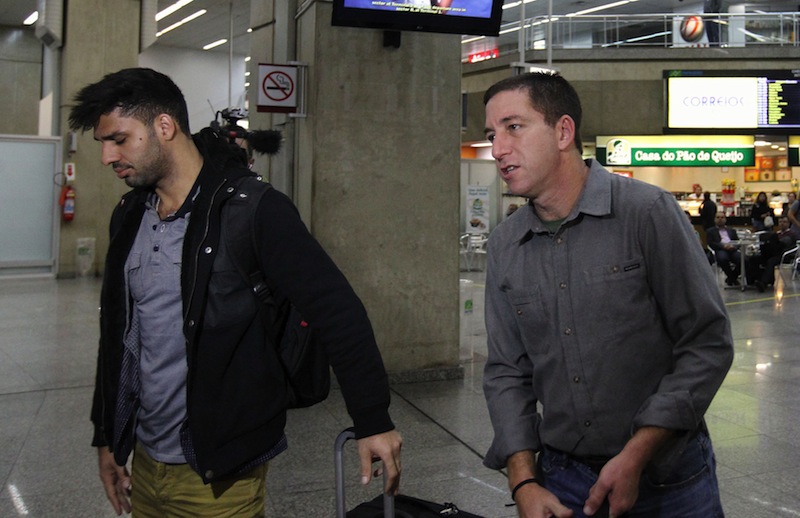LONDON (AP) — Lawyers for the partner of journalist Glenn Greenwald are challenging the lawfulness of his detention at London’s Heathrow Airport, arguing Wednesday in Britain’s High Court that the police’s use of counterterrorism powers violated their client’s fundamental rights.
Greenwald, a former reporter for the Guardian newspaper, has written a series of stories about spying by the U.S.’s powerful National Security Agency based on material leaked by former NSA contractor Edward Snowden.
Greenwald’s partner, David Miranda — a 28-year-old university student — was held and questioned at Heathrow for nearly nine hours in August under U.K. terrorism legislation. Miranda had been traveling home to Brazil after visiting Germany, where he met with Laura Poitras, a U.S. filmmaker who has worked with Greenwald on the NSA stories.
Lawyer Matthew Ryder, acting on behalf of Miranda against the British government, told a packed room that the case hinged on the lawfulness of Miranda’s detention under Schedule 7, which gives officers the power to stop, question and detain people at ports such as airports even if wrongdoing is not suspected. Authorities also seized electronic devices from Miranda such as his computer and cellphone.
Ryder asked the court to consider the main purpose under which the Schedule 7 powers were used by British authorities and whether it was proportionate to target Miranda.
“If the court finds that such a power was used proportionally in seizing journalistic material in this way, we ask court then to consider if Schedule 7 is compatible with fundamental rights — in particular, the right to freedom of expression,” Ryder stated. “This case illustrates vividly why it is not compatible.”
Miranda had unsuccessfully sued to stop police from combing through material seized from him during the search. The government says police required access to his computer files on national security grounds and feared material seized from Miranda could compromise its counterterror operations.
Copyright 2013 The Associated Press. All rights reserved. This material may not be published, broadcast, rewritten or redistributed.






